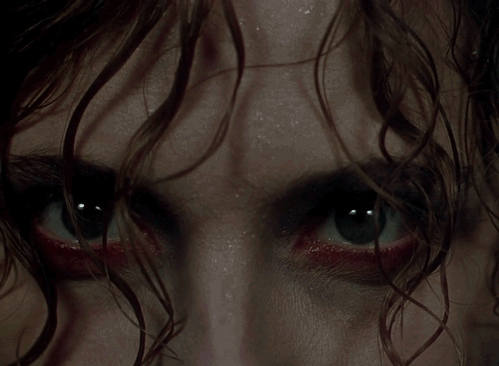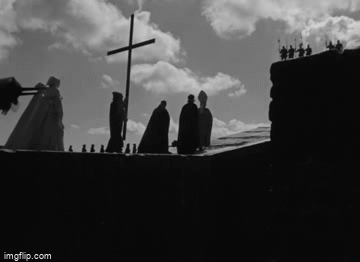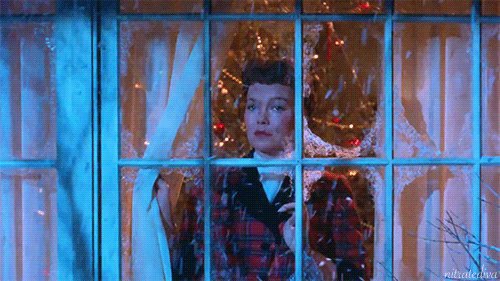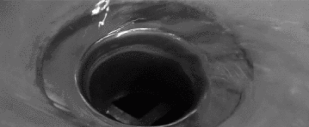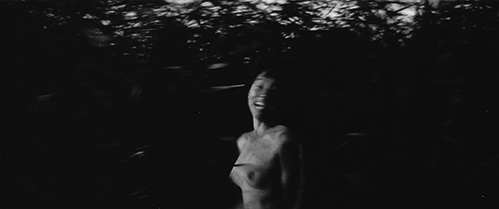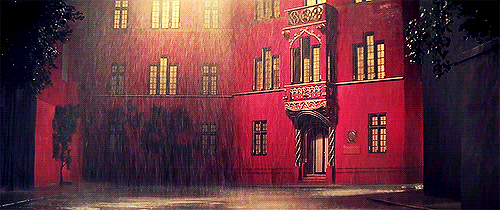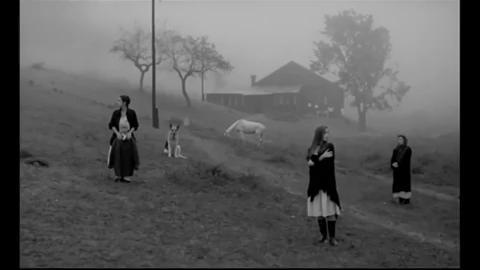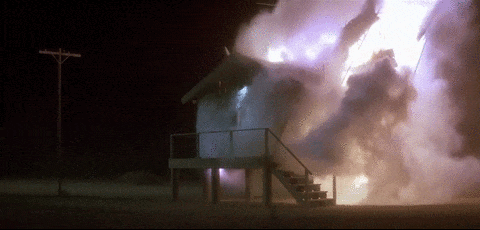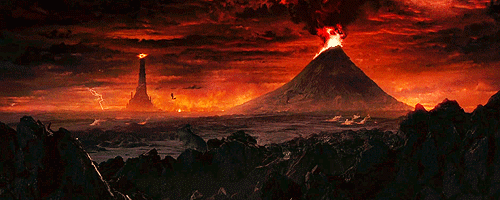Visuele meesterwerken
De kwaliteit van een film wordt in grote mate bepaald door de beelden. Cinema is immers een bij uitstek visueel medium. In overleg met o.a. de regisseur, de production designer, de art director, de decorontwerper en de filmlocatiescout, die mee de visuele aanblik van de film bepalen, coördineert de director of photography het camerawerk. Dit omvat cruciale keuzes inzake camerastandpunten, belichting, cameralenzen, beeldcomposities en camerabewegingen. Daarmee is de director of photography niet alleen mee verantwoordelijk voor wàt er precies in beeld verschijnt en hoe elk shot gefilmd wordt, maar ook voor sfeerschepping. In het beste geval levert dat een oogstrelend meesterwerk met een grote emotionele impact en inhoudelijke meerwaarde op.
Hieronder vindt u onze persoonlijke selectie van de producties met het knapste camerawerk in de filmgeschiedenis, waarbij we telkens ook de director of photography vermelden.
Cinefielen zullen in onze Top 80 enkele briljante visuele tovenaars herkennen, zoals o.a. de cameramannen George Barnes, Gregg Toland, Stanley Cortez, Jack Cardiff, Robert Burks, Russell Metty, Freddie Young, Geoffrey Unsworth, Vittorio Storaro, Gordon Willis, John Alcott, Néstor Almendros, Jordan Cronenweth, Takao Saitô, Vilmos Zsigmond, Robert Richardson, Emmanuel Lubezki en Roger Deakins.
De visuele magie van de films in onze onderstaande lijst is vanzelfsprekend ook te danken aan hun regisseurs, onder wie F.W. Murnau, Alfred Hitchcock (één van onze favoriete cineasten), Michael Powell, Akira Kurosowa (ook één van onze favoriete cineasten), Orson Welles, Andrei Tarkovsky, Stanley Kubrick (onze favoriete cineast), Federico Fellini (ook één van onze favoriete cineasten), Francis Ford Coppola (ook één van onze favoriete cineasten), Ridley Scott (ook één van onze favoriete cineasten), Martin Scorsese (ook één van onze favoriete cineasten), David Lynch (ook één van onze favoriete cineasten) en Yimou Zhang (ook één van onze favoriete cineasten) .
TOP 80
in chronologische volgorde
1922 - Nosferatu van F.W. Murnau.
Fotografie: Fritz Arno Wagner en Günther Krampf.
Genre: horror
1922 - Häxan van Benjamin Christensen.
Fotografie: Johan Ankerstjerne.
Genre: docudrama / horror
1926 - Faust van F.W. Murnau.
Fotografie: Carl Hoffman.
Genre: fabel / fantasy / horror
1927 - Metropolis van Fritz Lang.
Fotografie: Karl Freund, Günther Rittau en Walter Ruttmann.
Genre: sciencefiction / maatschappijkritisch drama
1927 - Sunrise van F.W. Murnau.
Fotografie: Charles Rosher en Karl Struss.
Genre: romantisch drama
1939 - Gone with the Wind van Victor Fleming.
Fotografie: Ernest Haller en Lee Garmes.
Genre: historisch drama / romantiek / oorlogsfilm
1940 - Rebecca van Alfred Hitchcock.
Fotografie: George Barnes.
Genre: psychologische thriller / romantisch drama / mysterie
1941 - Citizen Kane van Orson Welles.
Fotografie: Gregg Toland.
Genre: psychosociaal drama
1942 - The Magnificent Ambersons van Orson Welles.
Fotografie: Stanley Cortez.
Genre: familiedrama / romantiek
1942 - Cat People van Jacques Tourneur.
Fotografie: Nicholas Musuraca.
Genre: horrorthriller / mysterie / psychologisch drama / erotiek / fantasy
1944 - Meet Me in St. Louis van Vincente Minnelli.
Fotografie: George J. Folsey.
Genre: musical / familiedrama
1945 - Leave Her to Heaven van John M. Stahl.
Fotografie: Leon Shamroy.
Genre: film noir / psychosociale misdaadthriller / familiedrama
1947 - Black Narcissus van Michael Powell en Emeric Pressburger.
Fotografie: Jack Cardiff.
Genre: psychosociaal drama / thriller / romantiek
1948 - The Red Shoes van Michael Powell en Emeric Pressburger.
Fotografie: Jack Cardiff.
Genre: dansfilm / romantisch drama / sprookje
1949 - The Third Man van Carol Reed.
Fotografie: Robert Krasker.
Genre: film noir / misdaadmysterie
1951 - Strangers on a Train van Alfred Hitchcock.
Fotografie: Robert Burks.
Genre: misdaadthriller / film noir
1951 - The Tales of Hoffmann van Michael Powell en Emeric Pressburger.
Fotografie: Christopher Challis.
Genre: musical / fantasy
1952 - The Tragedy of Othello van Orson Welles.
Fotografie: G.R. Aldo, Anchise Brizzi, George Fanto, Alberto Fusi en Oberdan Troiani.
Genre: historisch kostuumdrama / romantiek
1955 - The Night of the Hunter van Charles Laughton.
Fotografie: Stanley Cortez.
Genre: misdaadthriller / roadmovie / familiedrama
1955 - All That Heaven Allows van Douglas Sirk.
Fotografie: Russell Metty.
Genre: psychosociaal drama / romantiek
1956 - The Ten Commandments van Cecil B. DeMille.
Fotografie: Loyal Griggs.
Genre: bijbeldrama / avontuur
1956 - The Searchers van John Ford.
Fotografie: Winton C. Hoch.
Genre: western / avontuur / roadmovie / familiedrama
1957 - Throne of Blood van Akira Kurosowa.
Fotografie: Asakazu Nakai.
Genre: historisch drama / tragedie
1958 - Vertigo van Alfred Hitchcock.
Fotografie: Robert Burks.
Genre: misdaadmysterie / romantisch drama
1958 - Touch of Evil van Orson Welles.
Fotografie: Russell Metty.
Genre: film noir / misdaadthriller / mysterie
1960 - Black Sunday van Mario Bava.
Fotografie: Mario Bava.
Genre: horror
1960 - Psycho van Alfred Hitchcock.
Fotografie: John L. Russell.
Genre: horror / psychologische misdaadthriller
1960 - Peeping Tom van Michael Powell.
Fotografie: Otto Heller.
Genre: misdaadthriller / horror / psychologisch drama
1962 - Lawrence of Arabia van David Lean.
Fotografie: Freddie Young.
Genre: biopic / historisch drama / avontuur / oorlogsfilm
1962 - Ivan's Childhood van Andrei Tarkovsky.
Fotografie: Vadim Yusov.
Genre: oorlogsdrama
1962 - An Autumn Afternoon van Yasujirō Ozu.
Fotografie: Yûharu Atsuta.
Genre: psychosociaal drama
1963 - The Haunting van Robert Wise.
Fotografie: Davis Boulton.
Genre: gothic horror
1964 - Onibaba van Kaneto Shindo.
Fotografie: Kiyomi Kuroda.
Genre: horror / misdaaddrama / erotiek
1965 - Kaidan van Masaki Kobayashi.
Fotografie: Yoshio Miyajima.
Genre: sprookjes / anthologie / fantasy / horror
1966 - Faraon van Jerzy Kawalerowicz.
Fotografie: Jerzy Wójcik en Wiesław Zdort.
Genre: historisch drama
1968 - 2001: A Space Odyssey van Stanley Kubrick.
Fotografie: Geoffrey Unsworth.
Genre: sciencefiction / mysterie / drama
1969 - Satyricon van Federico Fellini.
Fotografie: Giuseppe Rotunno.
Genre: historisch drama / fantasy / erotiek
1970 - Il conformista van Bernardo Bertolucci.
Fotografie: Vitttorio Storaro.
Genre: psychosociaal historisch drama
1972 - The Godfather van Francis Ford Coppola.
Fotografie: Gordon Willis.
Genre: gangsterfilm / misdaad / familiedrama
1973 - Amarcord van Federico Fellini.
Fotografie: Giuseppe Rotunno.
Genre: tragikomedie / historisch drama / romantiek
1974 - The Godfather Part II van Francis Ford Coppola.
Fotografie: Gordon Willis.
Genre: gangsterfilm / misdaad / familiedrama
1975 - Barry Lyndon van Stanley Kubrick.
Fotografie: John Alcott.
Genre: historisch kostuumdrama / romantiek
1975 - Mirror van Andrei Tarkovsky.
Fotografie: Georgi Rerberg.
Genre: drama
1977 - Suspiria van Dario Argento.
Fotografie: Luciano Tovoli.
Genre: horror
1977 - The Duellists van Ridley Scott.
Fotografie: Frank Tidy.
Genre: historisch kostuumdrama / oorlogsfilm
1978 - Days of Heaven van Terrence Malick.
Fotografie: Néstor Almendros en Haskell Wexler.
Genre: historisch drama / romantiek
1979 - Apocalypse Now van Francis Ford Coppola.
Fotografie: Vittorio Storaro.
Genre: oorlogsfilm / historisch drama / avontuur / actie
1979 - Stalker van Andrei Tarkovsky.
Fotografie: Alexander Knyazhinsky.
Genre: sciencefiction / drama / mysterie
1979 - Tess van Roman Polanski.
Fotografie: Ghislain Cloquet en Geoffrey Unsworth.
Genre: romantisch drama
1980 - Raging Bull van Martin Scorsese.
Fotografie: Michael Chapman.
Genre: biopic / boksfilm / psychosociaal drama / romantiek
1980 - Dressed to Kill van Brian De Palma.
Fotografie: Ralf D. Bode.
Genre: psychoseksuele horrorthriller / misdaadmysterie / erotiek
1980 - Kagemusha van Akira Kurosawa.
Fotografie: Takao Saitô en Shôji Ueda.
Genre: historisch drama / oorlogsfilm
1980 - The Shining van Stanley Kubrick.
Fotografie: John Alcott.
Genre: horror / psychologische thriller / mysterie
1980 - Heaven's Gate van Michael Cimino.
Fotografie: Vilmos Zsigmond.
Genre: western / historisch drama
1982 - Blade Runner van Ridley Scott.
Fotografie: Jordan Cronenweth.
Genre: sciencefiction / tech noir / existentieel drama
1983 - Nostalghia van Andrei Tarkovsky.
Fotografie: Giuseppe Lanci.
Genre: drama
1983 - Rumble Fish van Francis Ford Coppola.
Fotografie: Stephen H. Burum.
Genre: psychosociaal coming-of-age-drama / misdaad / romantiek
1985 - Legend van Ridley Scott.
Fotografie: Alex Thomson.
Genre: sprookje / fantasy / avontuur
1985 - Ran van Akira Kurosowa.
Fotografie: Asakazu Nakai, Takao Saitô en Shôji Ueda.
Genre: oorlogsfilm / historisch drama
1986 - Blue Velvet van David Lynch.
Fotografie: Frederick Elmes.
Genre: psychoseksuele misdaadthriller / erotiek / mysterie
1992 - Bram Stoker's Dracula van Francis Ford Coppola.
Fotografie: Michael Ballhaus.
Genre: horror / romantisch kostuumdrama
1993 - The Age of Innocence van Martin Scorsese.
Fotografie: Michael Ballhaus.
Genre: romantiek / psychosociaal kostuumdrama
1995 - Casino van Martin Scorsese.
Fotografie: Robert Richardson.
Genre: gangsterfilm / romantisch drama
1995 - Se7en van David Fincher.
Fotografie: Darius Khondji.
Genre: misdaadthriller / mysterie / drama
1997 - Lost Highway van David Lynch.
Fotografie: Peter Deming.
Genre: psychologische thriller / misdaadmysterie / romantisch drama
1997- Mother and Son van Aleksandr Sokurov.
Fotografie: Aleksey Fyodorov.
Genre: existentieel gezinsdrama
1999 - Sleepy Hollow van Tim Burton.
Fotografie: Emmanuel Lubezki.
Genre: horrorsprookje / mysterie
2000 - The Cell van Tarsem Singh.
Fotografie: Paul Laufer.
Genre: psychologische misdaadthriller / horror
2000 - Gladiator van Ridley Scott.
Fotografie: John Mathieson.
Genre: historisch drama / avontuur / actie
2001, 2002, 2003 - The Lord of the Rings (trilogie) van Peter Jackson.
Fotografie: Andrew Lesnie.
Genre: fantasy / avontuur / actie / drama / romantiek / roadmovie
2002 - Hero van Yimou Zhang.
Fotografie: Christopher Doyle.
Genre: martial arts / historisch drama / avontuur / actie / romantiek
2003, 2004 - Kill Bill 1 & 2 van Quentin Tarantino.
Fotografie: Robert Richardson.
Genre: martial arts / actie / avontuur / misdaad
2004 - House of Flying Daggers van Yimou Zhang.
Fotografie: Zhao Xiaoding.
Genre: martial arts / actie / avontuur / romantisch drama / roadmovie
2007 - The Assassination of Jesse James by the Coward Robert Ford van Andrew Dominik.
Fotografie: Roger Deakins.
Genre: western / biopic / historisch drama
2011 - The Tree of Life van Terrence Malick.
Fotografie: Emmanuel Lubezki.
Genre: existentieel gezinsdrama / mysterie
2013 - Under the Skin van Jonathan Glazer.
Fotografie: Daniel Landin.
Genre: sciencefiction / thriller / mysterie
2013 - Gravity van Alfonso Cuarón.
Fotografie: Emmanuel Lubezki.
Genre: sciencefiction / drama / thriller
2015 - The Revenant van Alejandro González Iñárritu.
Fotografie: Emmanuel Lubezki.
Genre: western / biopic / avontuur / historisch drama / thriller / roadmovie
2015 - Macbeth van Justin Kurzel.
Fotografie: Adam Arkapaw.
Genre: historisch kostuumdrama / avontuur / actie
2017 - Blade Runner 2049 van Denis Villeneuve.
Fotografie: Roger Deakins.
Genre: sciencefiction / tech noir / existentieel drama / mysterie
Joeri Naanai.















